
Meera, better known as Mirabai, and venerated as Sant Meerabai, was a 16th-century Hindu mystic poet and devotee of Krishna. She is a celebrated Bhakti saint, particularly in the North Indian Hindu tradition.
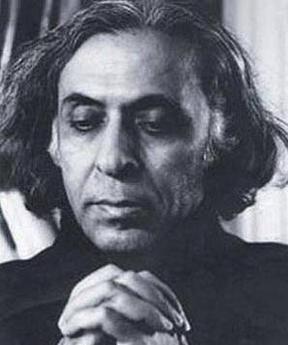
Raja Rao was an Indian-American writer of English-language novels and short stories, whose works are deeply rooted in metaphysics. The Serpent and the Rope (1960), a semi-autobiographical novel recounting a search for spiritual truth in Europe and India, established him as one of the finest Indian prose stylists and won him the Sahitya Akademi Award in 1963. For the entire body of his work, Rao was awarded the Neustadt International Prize for Literature in 1988. Rao's wide-ranging body of work, spanning a number of genres, is seen as a varied and significant contribution to Indian English literature, as well as World literature as a whole.
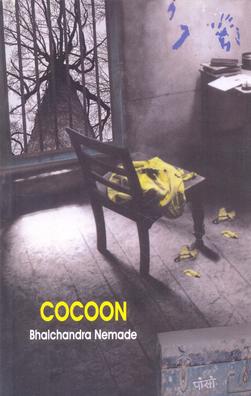
Kosala, sometimes spelled Kosla, is a Marathi novel by Indian writer Bhalchandra Nemade, published in 1963. Regarded as Nemade's magnum opus, and accepted as a modern classic of Marathi literature, the novel uses the autobiographical form to narrate the journey of a young man, Pandurang Sangvikar, and his friends through his college years.
Indian English literature (IEL), also referred to as Indian Writing in English (IWE), is the body of work by writers in India who write in the English language but whose native or co-native language could be one of the numerous languages of India. Its early history began with the works of Henry Louis Vivian Derozio and Michael Madhusudan Dutt followed by Rabindranath Tagore and Sri Aurobindo. R. K. Narayan, Mulk Raj Anand and Raja Rao contributed to the growth and popularity of Indian English fiction in the 1930s. It is also associated, in some cases, with the works of members of the Indian diaspora who subsequently compose works in English.

Kiran Nagarkar was an Indian novelist, playwright and screenwriter. A noted drama and film critic, he was one of the most significant writers of post-colonial India.
Shrikrishna Janardan Joshi (1915–1989) was a Marathi novelist from Maharashtra, India.
Bhojraj Singh Sisodia was the eldest son of Rana Sanga, ruler of Mewar in western India. He is best known as the husband of the reputed bhakti poet-saint Meerabai.
Indian English poetry is the oldest form of Indian English literature. Henry Louis Vivian Derozio is considered the first poet in the lineage of Indian English poetry followed by Rabindranath Tagore, Sri Aurobindo, Sarojini Naidu, Michael Madhusudan Dutt, and Toru Dutt, among others.
Padmaja Naidu was an Indian freedom fighter and politician who was the 4th Governor of West Bengal from 3 November 1956 to 1 June 1967. She was the daughter of Sarojini Naidu.

Mahendra Singh Mewar is an Indian politician who was a Member of Parliament in the Lok Sabha. He is the eldest son of Maharana Bhagwat Singh Mewar. Mahendra and his brother Arvind both claim to be the 76th custodian of the House of Mewar. Maharanas of Udaipur are considered not rulers but custodians of the kingdom on behalf of Sri Eklingji.
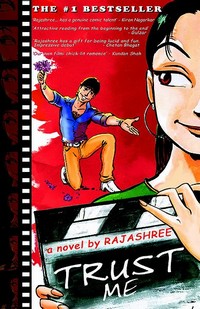
Trust Me is the biggest-selling Indian chick lit novel. Written by Rajashree, it is set in Bollywood, the Bombay film industry and uses the narrative structure of a masala Bollywood film.
Makarand R. Paranjape is an Indian novelist, poet, a former Director at Indian Institute of Advanced Study (IIAS), Shimla and, since 1999, a Professor of English in the Centre for English Studies at the Jawaharlal Nehru University in New Delhi.
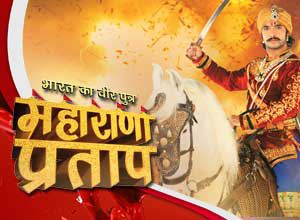
Bharat Ka Veer Putra – Maharana Pratap is an Indian historical fiction series produced by Contiloe Entertainment. It is based on the life of Maharana Pratap, a sixteenth century ruler of Mewar kingdom. It starred Sharad Malhotra, Rachana Parulkar, Faisal Khan and Roshni Walia.

Maharana Raj Singh I, was the Maharana of Mewar Kingdom and eldest son of Maharana Jagat Singh I. He fought against Mughal Empire and annexed many Mughal territories He participated in Rajput-Mughal War (1679–1707) and defeated the Mughals.
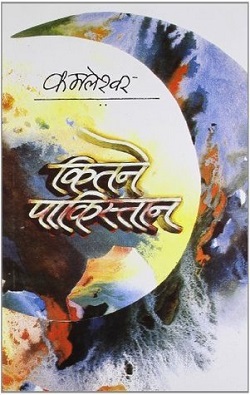
Kitne Pakistan is a 2000 Hindi novel by Kamleshwar, noted 20th-century Hindi writer, a pioneer of the Nayi Kahani movement of the 1950s, and later screenwriter for Hindi cinema. The novel combines allegory and realism, and deals with a vast expanse of human history, as it follows the rise of sectarianism, nationalism, Hindutva and communalism, raising questions about the true motives of the people who make decisions on the behalf and for common people, who throughout the history have borne the brunt of their decision. It witnesses the violence, separation and bloodshed in the aftermath of partition of India in 1947 and examines the nature and futility of divisive politics and religion.
The Maharaj Libel Case was an 1862 trial in the Bombay Court in British India. The case was against Nanabhai Rustomji Ranina and Karsandas Mulji, they alleged that & their public accusation is that the religious leaders of Pushtimarg had had sexual liaisons with women devotees, & it was libelous for petitioner.

The Death and Afterlife of Mahatma Gandhi is a 2014 non-fiction book by Indian writer Makarand Paranjape and published by Penguin Random House. The book is based on the analysis of Assassination of Mahatma Gandhi and the situations after his assassination.

Body Offering is an English-language novel written by Makarand Paranjape and published by Rupa Publications in 2013. The book received generally negative reviews from critics, who dubbed it a twice shadow.
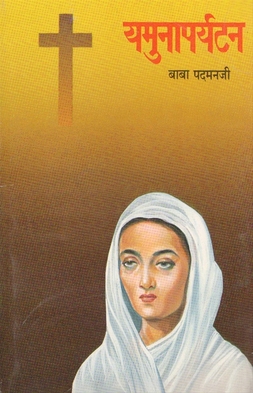
Yamuna Paryatan is a Marathi novel written by Marathi Christian missionary Baba Padmanji. It was published in 1857. The book praises the teachings of Christianity by describing the miserable condition of Hindu widows in the nineteenth century AD. Yamuna Paryatan was among the earliest novels written in India. It had a female-centric theme, which addressed the issue of women's condition in Hindu society. It gained nationwide attention due to the topic it discussed. It is also known for being the first vernacular-Marathi novel.
Bhoj Raj Seth (1907-1979) known with the initials, B R. Seth was an Indian professor of engineering and the father of Kiran Seth. He was the first vice chancellor of Dibrugarh University in 1966 and had worked in Indian Institute of Technology, Kharagpur.












